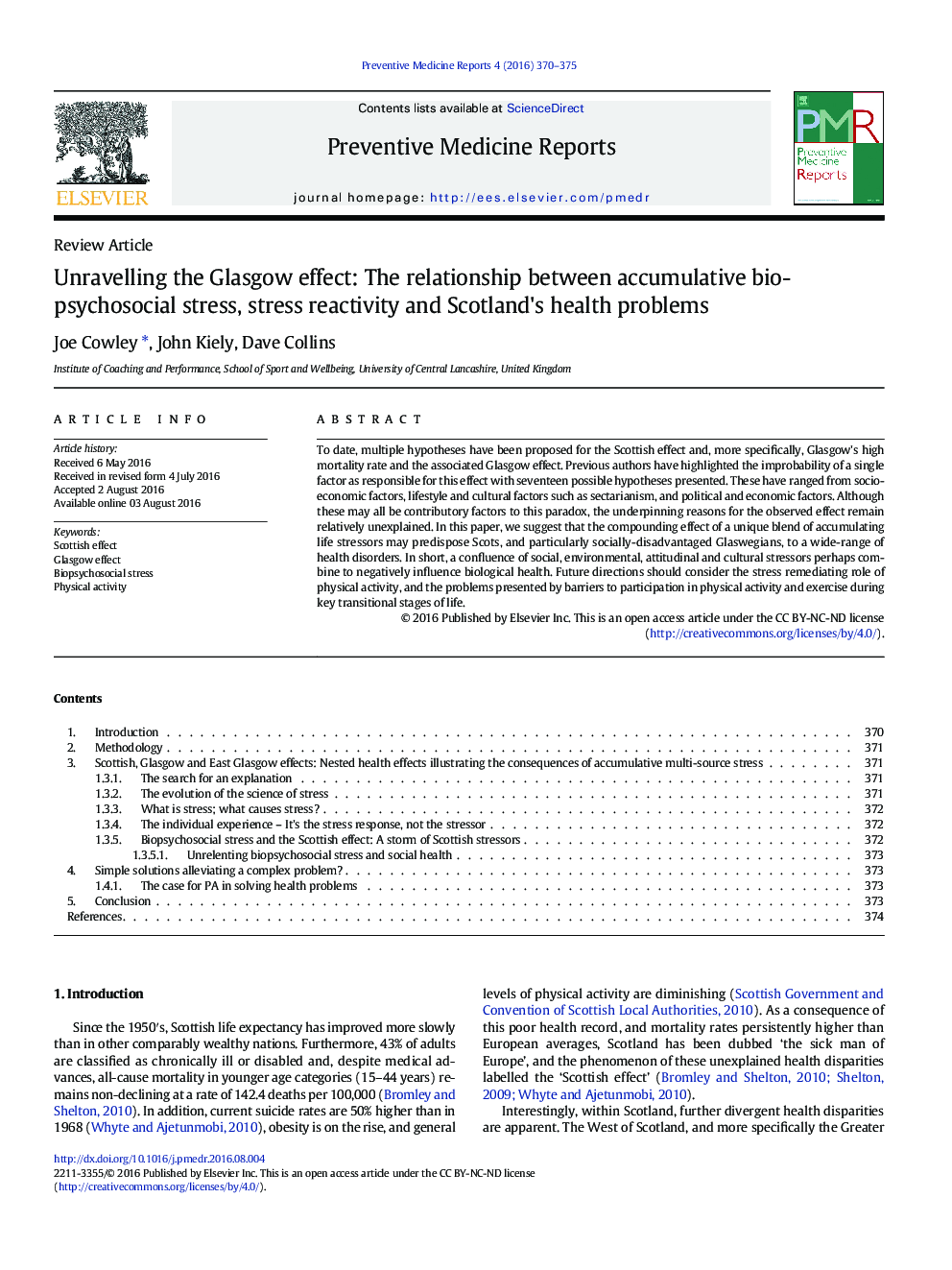| Article ID | Journal | Published Year | Pages | File Type |
|---|---|---|---|---|
| 4202236 | Preventive Medicine Reports | 2016 | 6 Pages |
•Evidence explaining the Scotland and associated Glasgow effects remains elusive.•We suggest that accumulating life stressors predispose Scots to a wide-range of health disorders.•Physical Activity (PA) and stress are bidirectional, we highlight the remediating role of PA.•Future work should focus on barriers and facilitators of PA.•Overcoming barriers to participation in PA and exercise at transitional stages of life is crucial.
To date, multiple hypotheses have been proposed for the Scottish effect and, more specifically, Glasgow's high mortality rate and the associated Glasgow effect. Previous authors have highlighted the improbability of a single factor as responsible for this effect with seventeen possible hypotheses presented. These have ranged from socio-economic factors, lifestyle and cultural factors such as sectarianism, and political and economic factors. Although these may all be contributory factors to this paradox, the underpinning reasons for the observed effect remain relatively unexplained. In this paper, we suggest that the compounding effect of a unique blend of accumulating life stressors may predispose Scots, and particularly socially-disadvantaged Glaswegians, to a wide-range of health disorders. In short, a confluence of social, environmental, attitudinal and cultural stressors perhaps combine to negatively influence biological health. Future directions should consider the stress remediating role of physical activity, and the problems presented by barriers to participation in physical activity and exercise during key transitional stages of life.
